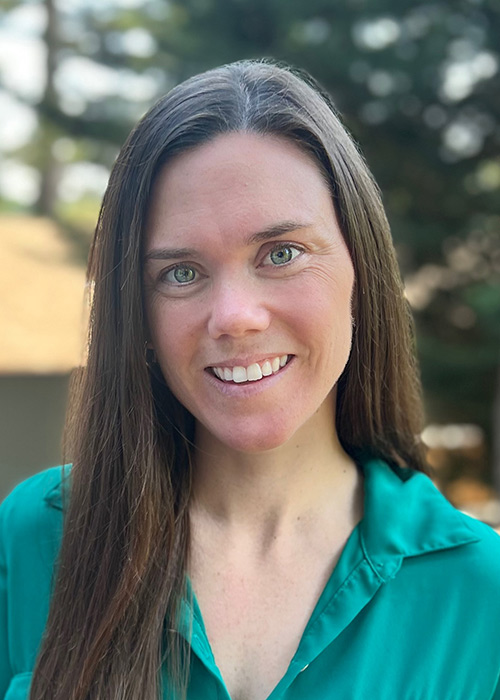
What have you been doing since completing your degree & RDN training?
After earning my degree and becoming an RD, I joined the Office of Superintendent of Public Instruction (OSPI), the state agency responsible for overseeing public K-12 education. I work in child nutrition services on USDA grant-funded initiatives aimed at improving the quality of school meals and driving positive change in the system.
What unique opportunities does UW / Seattle offer for students pursuing a degree in dietetics?
UW stands out for students interested in dietetics because it bridges public health and nutrition. The fact that UW has both a top-tier public health program and a highly regarded medical school means that UW dietetics graduates are well-equipped to pursue careers in both the clinical and public health space. Additionally, being in a city like Seattle means you’re surrounded by opportunities for real-world case studies, hands-on projects, and connections with people and organizations that are making a real impact.
How was the small cohort size beneficial to you?
I really appreciated the small cohort size because it allowed me to build deep, meaningful connections with my classmates — some of my closest friends today are people I met during my UW experience. The smaller group fostered more engagement in class discussions and made it easier for me to ask questions. While the cohort was small, it was large enough that classmates have pursued a diverse range of career paths. It is exciting to see where folks have ended up and I’m confident that my UW network will continue to open up opportunities in the future.
Did the training or connections you made during the program assist you in securing a job?
While my current position wasn’t a direct result of my practicum, the skills and experiences I gained during that time working with child nutrition programs significantly strengthened my qualifications and resume. My practicum advisor became an invaluable public health mentor for me and was a tremendous resource during my job search.
Describe your nutrition experience prior to our program and comment on if / how our program complemented your previous learning?
Coming from a background in accounting (CPA), dietetics was a completely new field for me aside from the prerequisites I completed. I found that UW embraced students with diverse academic and professional backgrounds. The program helped me build on the scientific foundation from my prerequisite courses and supported me as I transitioned into this new field.
The following are excerpts from an interview with McConaughy featured on our website in 2023 when she was still a student:
What influenced you to pursue a graduate degree in nutritional sciences?
Dietetics is a second career for me. Before entering the program, I was working as a CPA at a primary care start-up. Working with this company, my eyes were opened to the role of high-quality diets and access to good nutrition in health outcomes. I also experienced the benefits of working with a dietitian firsthand in my journey with Inflammatory Bowel Disease. I believe that nutrition is an incredibly valuable tool that is heavily underutilized in both the healthcare and public health space, so I decided to pursue a career in nutrition and public health to help change this.
Why did you choose to attend UW?
UW was a great choice for me because my interests in dietetics ranged from individual medical treatment to systems-level change. I knew that I wanted to attend a rigorous, scientific program to understand the mechanisms of nutrition on the cellular level, and I also wanted to dive into public health policy and programming. The Master of Public Health in Public Health Nutrition at UW allowed me to get the best of both worlds and I knew would set me up for a career in either or both directions.
How do you see the importance of nutritional sciences in public health?
Everyone deserves to enjoy the benefits of nourishing food. Ready access to nutritious food is not something experienced equally across all communities. Historical forces including systemic racism have resulted in social and racial inequities in the quality and quantity of food available. I believe public health strategies in nutrition addressing these inequities have enormous potential to improve health outcomes in underserved communities. The better we understand the science of nutrition, the better equipped we are to create quality policies and programs. Nutritional sciences can provide the evidence and direction for public health interventions to make the healthy dietary choice the easy choice for people of all identities no matter their geography or economic status.
Tell us about your research or recent projects.
Most recently, I completed my public health practicum with the Washington State Department of Health and Vic Colman from Uncommon Solutions LLC. I had the opportunity to work with a grant-funded team leading Farm to Early Care and Education (Farm to ECE) work in Washington. Farm to ECE initiatives bring local food, agriculture, and nutrition into early learning settings such as preschools and daycares through experiential learning opportunities. A primary goal of this work is to improve children’s dietary habits and cultivate a connection to food, and Farm to ECE can also support community health, food systems, and local farmers. My project involved analyzing the results from a statewide Farm to ECE survey, developing a report, and presenting the insights from the data gathered to a variety of audiences. This project afforded me the opportunity to learn a lot about both Farm to ECE and Farm to School strategies as public health interventions. My experience recently culminated in a Farm to School Network conference in Wenatchee where I was able to share my findings and network with many public health professionals.
Are you interested in studying nutritional sciences as a graduate student? Explore programs and RDN training offered in the UW Food Systems, Nutrition, and Health program.